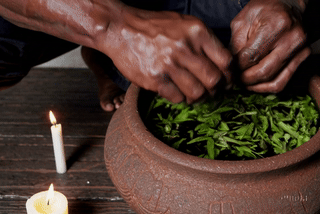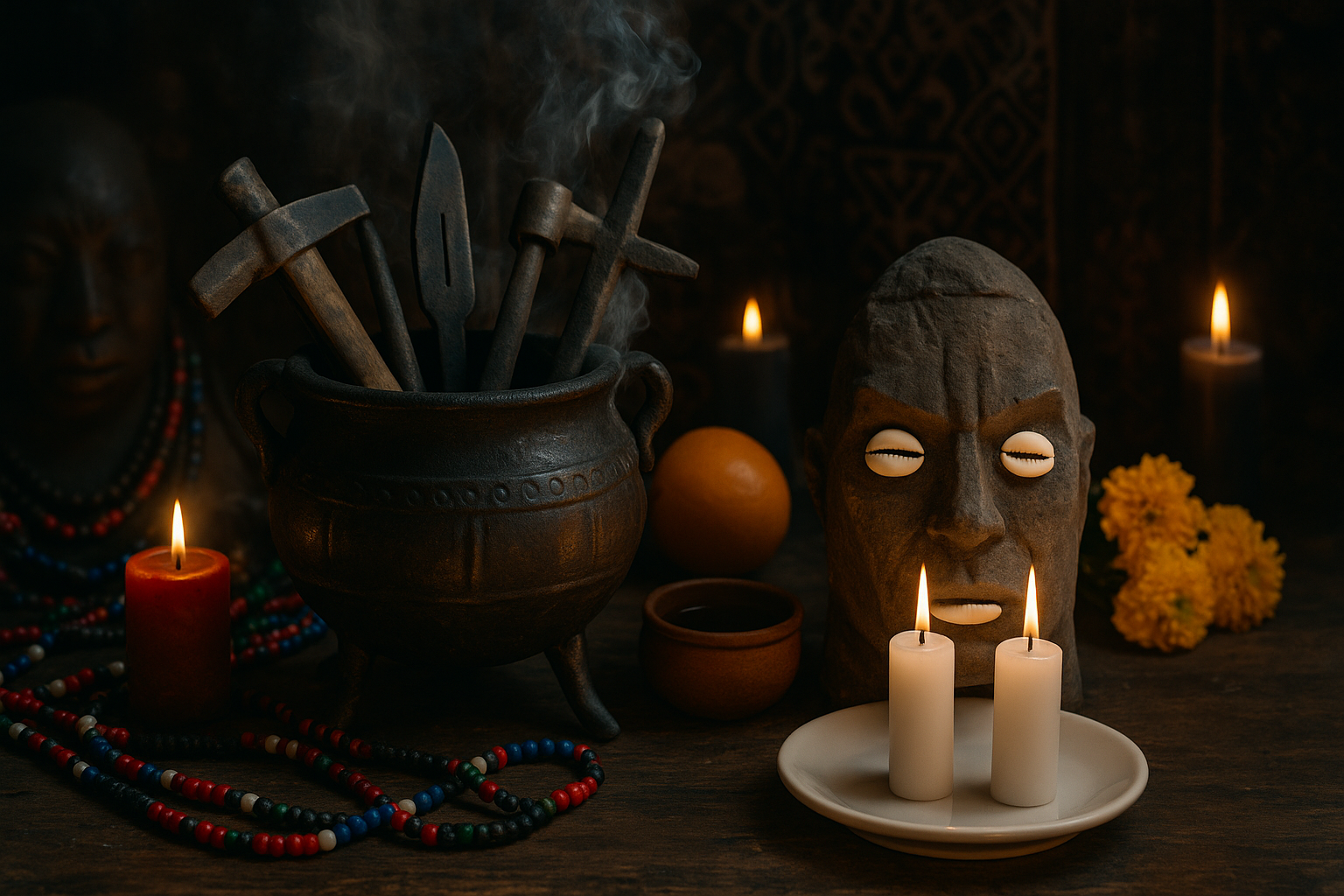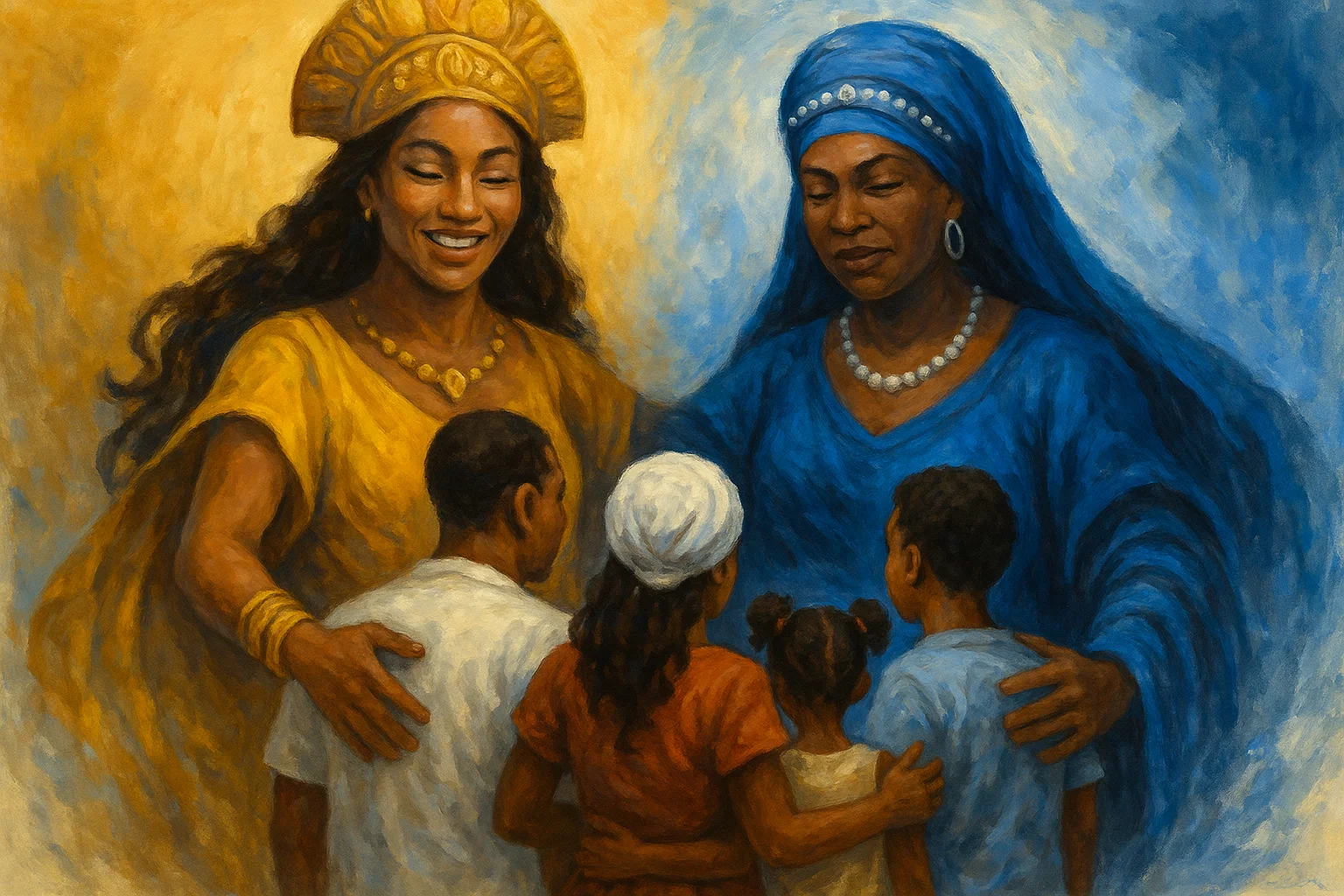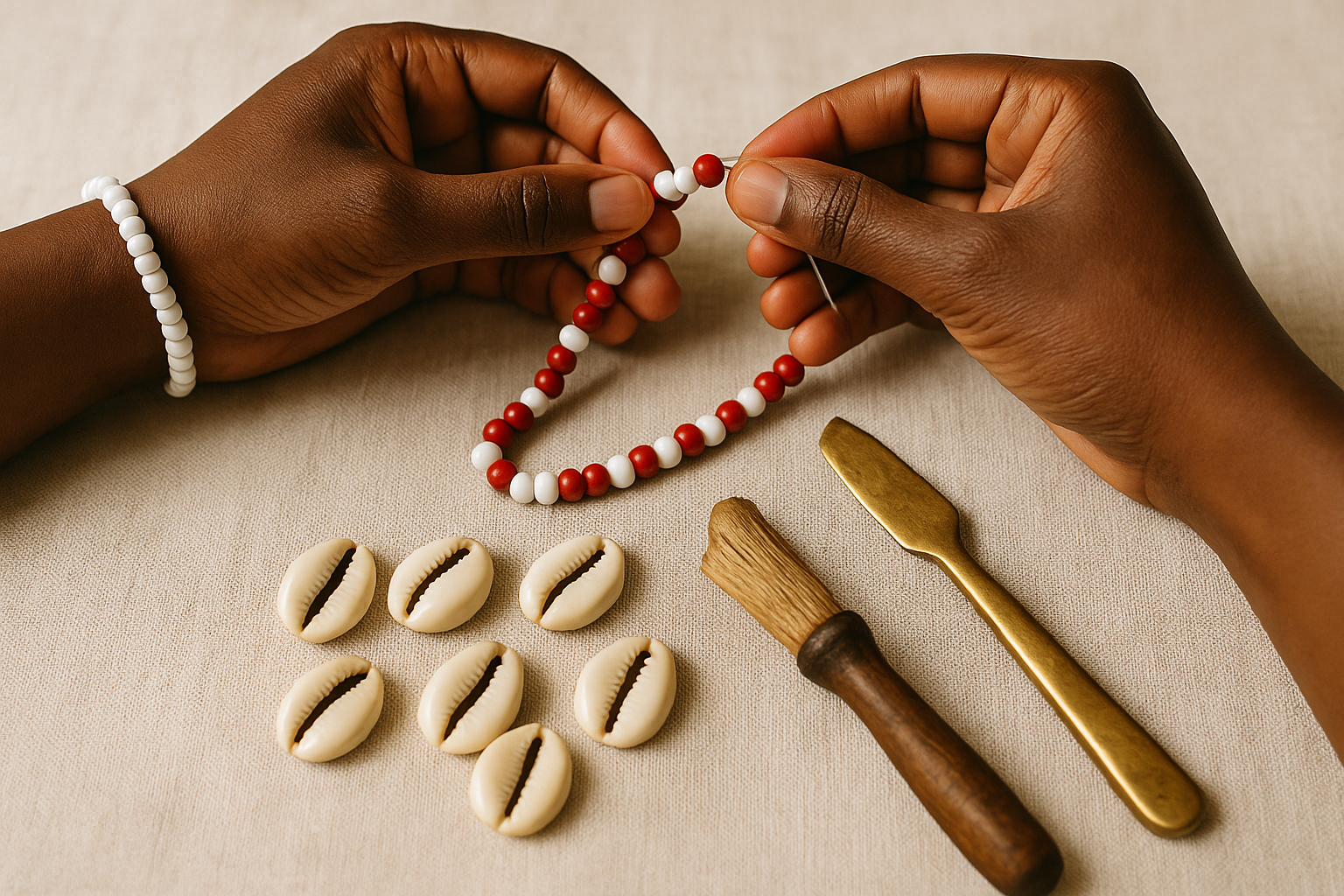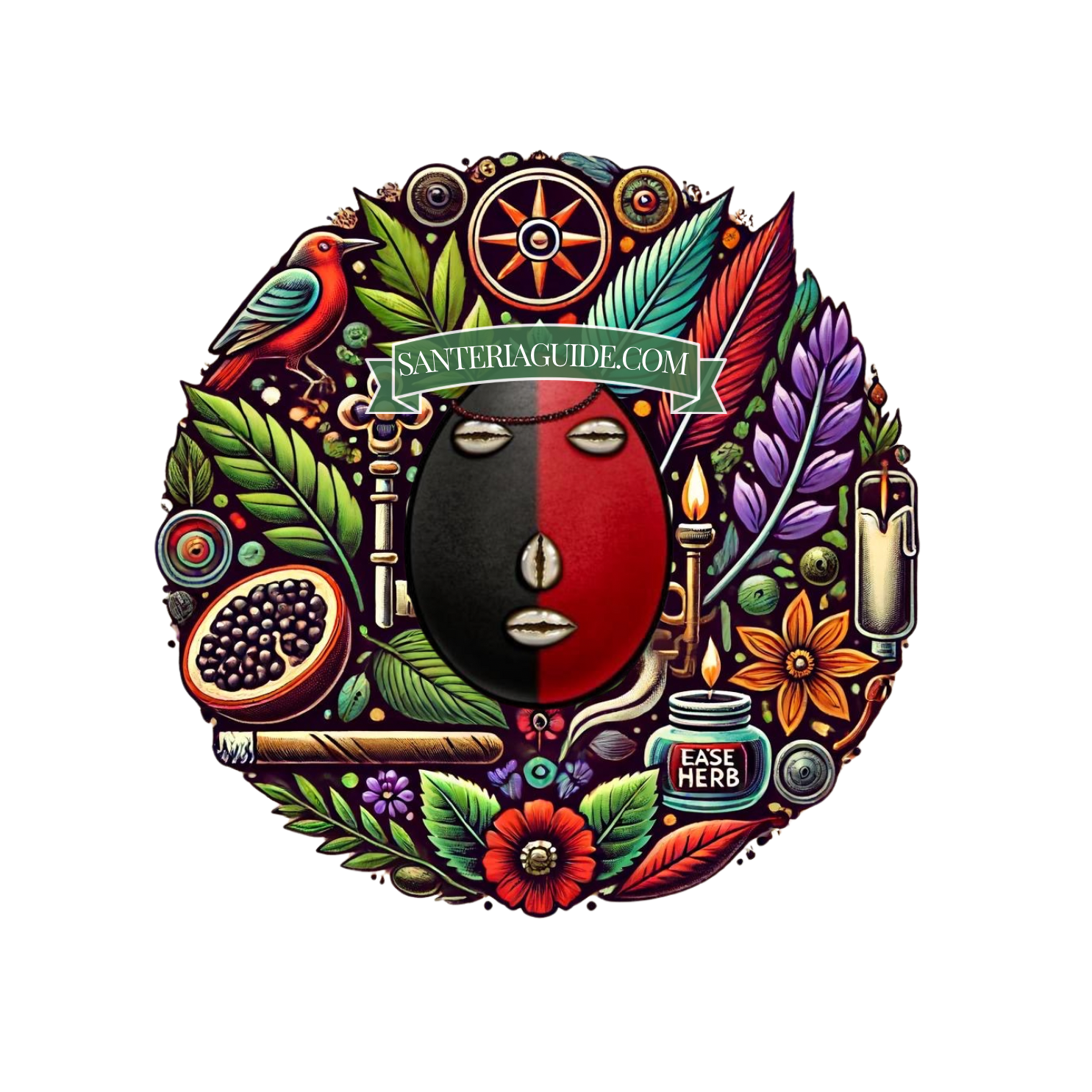- Why it matters to have handmade items in any spiritual altar
- The Sacred Connection: Handmade Items in Spiritual Altars
- The Energetic Imprint of Human Hands
- Traditional Materials and Their Spiritual Significance
- Color, Pattern, and Sacred Numerology
- Ancestral Continuity Through Handcrafted Implements
- Preserving Sacred Knowledge Through Craftsmanship
- Ethical Considerations in Spiritual Supply
- Avoiding Spiritual Commodification
- Creating Sacred Space Through Authenticity
- Personal Connection to Spiritual Tools
- Frequently Asked Questions About Handmade Spiritual Items
The Sacred Connection: Handmade Items in Spiritual Altars
The foundation of any profound spiritual practice lies in the authenticity of the tools and elements that compose one's sacred space. Within traditions such as Santería, Lucumí, and Yoruba, handcrafted ritual implements serve as conduits between the physical and metaphysical realms. The presence of handmade mazos, ildes, collares de gala, and other ceremonial tools on an altar isn't merely decorative—it's transformative, establishing a vibrational harmony that mass-produced items simply cannot achieve.
When a santero or babalawo engages with handcrafted spiritual tools, they're participating in a lineage of tradition that spans centuries and continents. The ancestral wisdom embedded within these practices emphasizes that the journey toward spiritual enlightenment requires implements made with intention, reverence, and adherence to sacred methodologies.
The Energetic Imprint of Human Hands
Handcrafted ritual tools carry the unique energetic signature of their creator. When an artisan fashions a mazo for Changó or strings the sacred beads of an eleke, their consciousness becomes interwoven with the physical material. This infusion of human energy—focus, intention, and ancestral knowledge—creates an object that resonates at a frequency unattainable through mechanical production.
The subtle vibrations emanating from handmade ceremonial items establish a more potent connection to the orishas and egguns (ancestors). This energetic concordance facilitates clearer communication between the practitioner and the spiritual forces they seek to honor and work with in their practice.
Traditional Materials and Their Spiritual Significance
The materials used in creating ceremonial tools carry inherent spiritual properties that mass production often compromises. Natural elements—coconut shell, specific woods, organic beads, and minerals—retain their metaphysical attributes when handled with proper spiritual protocol. The babalawo understands that these materials aren't simply physical substances but carriers of ashé (divine energy) that must be approached with reverence.
"The hands that craft our spiritual tools become extensions of divine will. When we place handmade items on our altars, we honor not just the orishas, but the unbroken chain of knowledge that connects us to our spiritual ancestors."
— Traditional Lucumí saying
Color, Pattern, and Sacred Numerology
The meticulous attention to color combinations, patterns, and numerical sequences in handmade spiritual items reflects cosmological principles fundamental to Ifá wisdom. Each orisha's tools feature specific chromatic arrangements that harmonize with their energy. The careful selection of sixteen cowrie shells for divination tools or the precise number of beads on an ilde demonstrates adherence to sacred mathematics that machine production often overlooks.
The intimate knowledge required to create these items correctly extends beyond mere craftsmanship into the realm of spiritual science. When placed on an altar, these handmade items create a harmonious arrangement that aligns with universal principles, enhancing the efficacy of prayers, offerings, and ceremonies.
Ancestral Continuity Through Handcrafted Implements
The creation of ritual tools by hand represents an unbroken spiritual lineage. When a practitioner places a traditionally crafted mazo or collar de gala on their altar, they're engaging with centuries of accumulated wisdom. This connection to ancestral methodologies strengthens the practitioner's bond with their spiritual heritage, creating a temporal bridge between past wisdom and present practice.
For those initiated into traditions like Santería or working within the system of Ifá, the authenticity of altar implements directly impacts the efficacy of their spiritual work. The aché (spiritual power) flowing through properly crafted ceremonial tools amplifies intentions and facilitates deeper communion with divine forces.
Preserving Sacred Knowledge Through Craftsmanship
The techniques for creating spiritual implements are themselves sacred knowledge, passed down through generations via direct transmission from teacher to student. This preservation of methodology ensures that the spiritual technology remains intact and effective. When practitioners support artisans who maintain these traditional crafting methods, they contribute to the continuation of essential spiritual knowledge.
The placement of such items on one's altar represents a commitment to spiritual authenticity and respect for the traditions that have preserved these practices through centuries of challenges, including colonization, displacement, and cultural suppression.
Ethical Considerations in Spiritual Supply
The acquisition of handmade ceremonial items also carries ethical implications within spiritual communities. The relationship between craftsperson and practitioner ideally reflects mutual respect and fair exchange. Supporting artisans who create mazos, ildes, and other ritual tools with proper knowledge and intention helps sustain spiritual ecosystems that benefit both individuals and collective tradition.
Avoiding Spiritual Commodification
Mass-produced spiritual items often result from the commodification of sacred traditions, divorcing the objects from their proper context and spiritual potency. When practitioners prioritize handmade items, they resist commercial forces that dilute spiritual authenticity for profit. This conscious choice protects the integrity of traditions like Santería, Lucumí practices, and Ifá wisdom.
| Ritual Tool | Traditional Materials | Spiritual Significance |
|---|---|---|
| Mazo (Beads that Adorn the Orisha) | Specific woods, beads, cowrie shells | Extension of the orisha's power; channel for aché |
| Ilde (consecrated Bracelet) | Cotton thread, specific colored beads | Protection; visual identifier of "Crowned"orisha relationship |
| Collar de Gala (Ceremonial Necklace) | Glass beads, seeds, stones specific to orishas | Connection to initiated lineage; contains consecrated energy |
Creating Sacred Space Through Authenticity
The cumulative effect of handmade items on a spiritual altar transcends the sum of individual pieces. Together, these elements create a cohesive energetic field that transforms ordinary space into sacred territory. The authenticity of each component contributes to this transmutation, creating an environment where spiritual work can proceed with maximum efficacy.
For those working within traditions guided by babalawos and the wisdom of Ifá, the altar becomes a focal point for communion with divine forces. The quality and authenticity of items placed there directly influence the clarity and strength of this communication.
Personal Connection to Spiritual Tools
The relationship between practitioner and handmade spiritual implements develops unique characteristics over time. As these items participate in ceremonies, receive offerings, and witness prayers, they accumulate spiritual charge that enhances their effectiveness. This developing relationship between person and object creates a spiritual symbiosis impossible with mass-produced items that lack individual character and history.
Frequently Asked Questions About Handmade Spiritual Items
How can I verify the authenticity of handmade spiritual items?
Authentic items typically show subtle variations indicative of handcrafting. Consult with established members of your spiritual community or reputable suppliers who maintain direct relationships with traditional artisans.Is it necessary for all altar items to be handmade?
While tradition emphasizes handcrafted implements for central ceremonial tools like mazos, ildes, and collares, practicality sometimes requires compromise. Prioritize handmade items for tools that directly channel spiritual energy or participate in ceremonies.Can I create my own ritual implements?
Creation of certain ceremonial items requires specific initiation, knowledge, and spiritual authority. While some personal devotional items may be crafted by practitioners, many traditional tools should be created by those with proper training and spiritual authorization.
The decision to incorporate handmade items into your spiritual altar represents more than aesthetic preference—it's a fundamental choice that impacts the efficacy of your spiritual practice. By honoring the traditional methods of creating mazos, ildes, and other ceremonial tools, practitioners maintain connections to ancestral wisdom while creating sacred spaces of authentic power and divine resonance.
